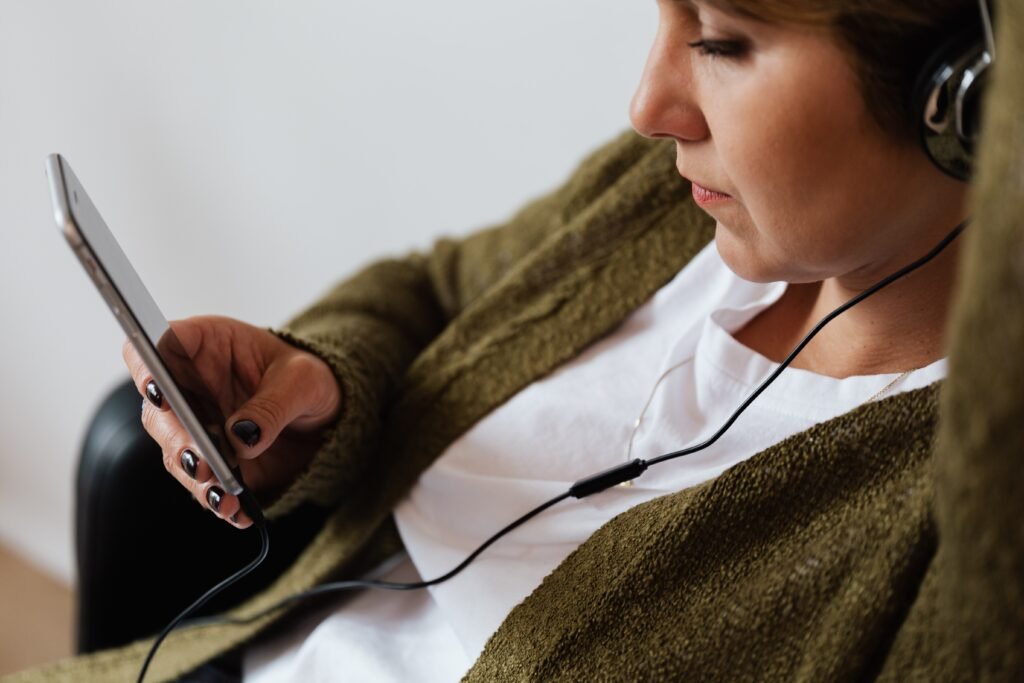In the rapidly evolving world of digital marketing, social media has become an indispensable tool for businesses to connect with their target audience. And in our modern society, social media has become an integral part of our daily lives. It offers us opportunities to connect, share, and engage with others on a global scale. However, it’s important to recognise the intricate relationship between social media and mental health. And although social media users are exactly those whom digital marketers are trying to reach, it is crucial for marketing agencies, like us, to comprehend the profound effects social media has on mental health.
The first step towards creating a healthier relationship with our favourite social platforms is to better understand the effects it has on us. This blog aims to delve into the intricate relationship between social media, mental health and how social media users alike can become more responsible consumers.

The Rise of Social Media Addiction
Excessive social media consumption has been linked to negative mental well-being effects. Social media platforms are ingeniously designed to employ features such as endless scrolling, instant gratification, and constant notifications to lure their users into using the platform for longer and more frequently, according to an article published in the National Library of Medicine. According to the article, addictive behaviour develops from habits.
Excessive use of social media has been linked to symptoms similar to addiction, including compulsively checking your device, neglect of real-life activities, and withdrawal symptoms when deprived of online engagement.
Levon Helm writes in her book, Dopamine Nation, “the smartphone is the modern-day hypodermic needle, delivering digital dopamine 24/7 for a wired generation. If you haven’t met your drug of choice yet, it is coming soon to a website near you”. The problem is that dopamine
is not only the “feel good” hormone but the “let’s do it again” hormone.
According to an article published in the Pew Research Centre, daily use of social media is linked to increased risks of self-harm. The article also highlights that adolescents and emerging adults are more responsive to the effects of social media. Youth often turn to social media for a sense of belonging or as a way to avoid offline challenges, but this can lead to difficulties in managing emotions and academic performance.
Social media addiction can also impact real-life relationships. Excessive time spent on social media can detract from face-to-face interactions, leading to feelings of loneliness and isolation. It can create a cycle where individuals rely on virtual connections for validation and social support while neglecting their offline relationships. This can further contribute to feelings of depression and loneliness.
Additionally, social media addiction has been associated with poor body image and disordered eating behaviours. The emphasis on appearance and the prevalence of edited images on social media can distort individuals’ perceptions of beauty and contribute to body
dissatisfaction. This, in turn, may lead to unhealthy behaviour such as extreme dieting or excessive exercise to achieve an unrealistic body standard, according to an article published in the National Library of Medicine, the world’s largest medical library.
The feedback loop
Excessive time spent scrolling through feeds exposes us to carefully curated content that often presents an idealised version of others’ lives. This constant exposure can breed feelings of inadequacy, self-comparison, and a persistent fear of missing out (FOMO). We find ourselves measuring our own lives against these artificial standards, leading to a sense of dissatisfaction and negative self-perception. These comparisons and self-doubt can take a toll on our mental well-being, ultimately leading to depressive symptoms. We may experience a loss of interest in real-life activities, a decrease in self-esteem, and an overall sense of sadness.
Paradoxically, when we’re feeling down, we often turn to social media for that dopamine spike as a means of escape or validation. We seek external approval and distraction from our negative thoughts and emotions. However, relying on social media as a coping mechanism usually exacerbates the issue. Moreover, excessive social media consumption disrupts our sleep patterns and reduces our engagement in offline social interactions. This further intensifies feelings of loneliness and isolation, creating a self-perpetuating cycle where social media becomes a substitute for meaningful connections.
Breaking free from this feedback loop requires conscious effort and a commitment to prioritise mental well-being. It starts by recognising the negative impact of social media on our mental health and setting limits on our usage. Establishing boundaries and allocating time for activities that promote face-to-face interactions can help reduce reliance on virtual connections.
Navigating the complex Dynamics
It is essential to raise awareness about the addictive nature of social media platforms and to encourage responsible consumption thereof. Especially seeing that social media benefits society to such a great extent: Increased connectivity and communication, dissemination of information, community building, business opportunities, and platform for self-expression. Education programs and campaigns can provide users with strategies to manage their social media use, such as setting limits, taking breaks, and being mindful of their online behaviour.
Building resilience in social media users can help them navigate and cope with the challenges they may encounter. This can be done through education and by providing resources that promote self-esteem, critical thinking, and emotional well-being. Fostering a culture of positivity and support on social media platforms can also help counteract the negative effects of comparison and online harassment. Emphasising kindness, empathy, and respectful communication can create a healthier online environment.
If you feel that your social media habit might not be on the healthy side, it may help if you establish clear boundaries for social media use by setting specific time limits. Determine how much time you want to allocate for social media each day and stick to that schedule. Use tools like smartphone apps or timers to remind you when your allotted time is up, helping you develop self-discipline and prevent excessive usage.
Be mindful of your intentions when using social media. Before opening an app or website, ask yourself why you are doing so. Are you seeking information, connection, or entertainment? Setting intentions can help you stay focused and avoid mindless scrolling, which often leads to addiction. Be aware of how social media affects your mood and well-being and make conscious choices about the content you engage with.
Two Practical Tips
Setting yourself a time limit and being mindful of your social media usage might be easier said than done. So if you are looking for more practical interventions, here are two tips that might just do the trick:
Disable Search and Viewing History: Many social media platforms use algorithms that analyze your search and viewing history to suggest content that aligns with your interests. Disabling your search and viewing history can help break the cycle of continuous scrolling and prevent the algorithm from constantly suggesting new content. This reduces the temptation to spend excessive time on social media platforms.
Turn Off Push Notifications: Push notifications can be a constant source of distraction and interruption, drawing you back into social media apps. Take control of your notifications by turning them off or customizing them to only receive essential updates. This minimizes the urge to constantly check your device and helps create a more intentional and focused social media experience


